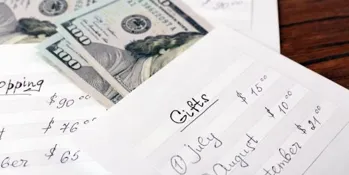- Quick Summary
- Kitchen Scraps are Still Usable
- Don’t Replace, Repair
- Cook from Scratch
- Create Your Own Cleaning Products
- Buy Secondhand
- Take Advantage of Coupons and Discounts
- Plan Meals to Cut Your Grocery Bill
- Bake Your Own Bread
- Use Cloth Diapers
- Dry Your Clothes on the Line
- Grow Your Own Food
- Use Cash When Shopping
- Borrow from Friends and Family
- Entertain with Potluck Dinners
- Create a Budget
- Brew Your Own Coffee
- Reuse All Those Containers
- Sell Things You Don’t Need
- Conclusion
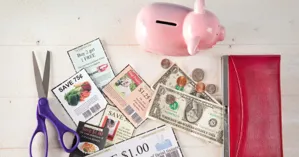
- Quick Summary
- Kitchen Scraps are Still Usable
- Don’t Replace, Repair
- Cook from Scratch
- Create Your Own Cleaning Products
- Buy Secondhand
- Take Advantage of Coupons and Discounts
- Plan Meals to Cut Your Grocery Bill
- Bake Your Own Bread
- Use Cloth Diapers
- Dry Your Clothes on the Line
- Grow Your Own Food
- Use Cash When Shopping
- Borrow from Friends and Family
- Entertain with Potluck Dinners
- Create a Budget
- Brew Your Own Coffee
- Reuse All Those Containers
- Sell Things You Don’t Need
- Conclusion
Your grandmother had it right when it came to being frugal, but her ways are still usable today. When it comes to some old tricks for saving money, everything old is new again. Here are 14 old-school frugal tips that still work. Incorporating old-fashioned frugal living tips from past generations can help us appreciate and utilize practical strategies like mending, cooking from scratch, and using available resources wisely.
1. Kitchen Scraps are Still Usable
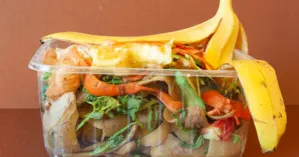
Reusing kitchen scraps kills two birds with one stone. You can be both frugal and sustainable. Instead of throwing away vegetable scraps, use them to make delicious homemade vegetable broth. And you can compost the fruit scraps. Both you and your plants win!
2. Don’t Replace, Repair

Every frugal grandmother knew this one. Don’t throw away those broken items; fix them. You can repair clothing, household items, and electronics by learning basic repairs, such as a few sewing skills for mending clothes. Get on YouTube; there’s a how-to video on everything, and learn how to fix a leaky faucet yourself. You’ll save money and be environmentally savvy.
3. Cook from Scratch
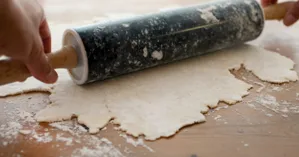
Cooking from scratch is one of the best frugal living tips that can save you so much money while ensuring you eat healthier. By preparing meals from scratch, you can avoid the high costs of pre-packaged and processed foods. Plus, you have complete control over the ingredients and portion sizes, which helps reduce food waste and save money.
Some old-school frugal tips for cooking from scratch include:
- Using staple ingredients like beans, lentils, and oats to make hearty and affordable meals.
- Stretching meals with fillers like bread, potatoes, and dumplings.
- Repurposing leftovers to create new, delicious meals.
- Baking your own bread and other baked goods instead of buying them from the store.
By embracing the art of cooking from scratch, you can save money, eat healthier, and develop a valuable skill that will last a lifetime.
4. Create Your Own Cleaning Products

Effective cleaning products can be made with vinegar, lemon essential oils and baking soda. These combined can effectively clean many different surfaces. Making it yourself is suitable for the budget. If you're not sure how to do it, once more go on YouTube.
5. Buy Secondhand
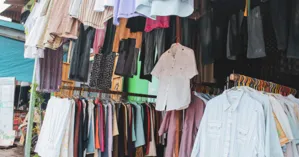
If you want to save money and reduce landfills, start buying used ones. Online marketplaces and thrift stores have a lot of cool stuff. Most of it is gently used. By buying clothing or furniture used, you can outfit yourself or your home with very little money.
6. Take Advantage of Coupons and Discounts
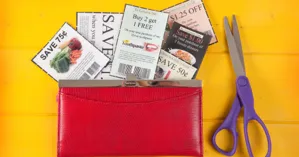
It’s high-tech now, but still old school. Use money saving tips like coupons and discounts when buying groceries or other products. Gone are the days of cutting out coupons; instead, we download an app to help us save. Use apps like Rakuten or Checkout 51 to save. Your grandmother will be confused but proud.
7. Plan Meals to Cut Your Grocery Bill
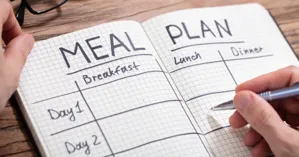
Organizing your meals in advance will help you save money. By planning weekly or even monthly, you'll know exactly what you'll need from the grocery store. You'll make a list and follow it. You're also less likely to make impulse purchases. Food waste is minimized because you only buy what you need. If you have meals planned, you’re less apt to grab fast food on busy days.
8. Bake Your Own Bread
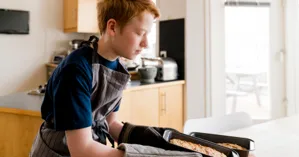
Even though you must buy the ingredients, like flour, yeast, salt, etc., you’ll still end up with a loaf of bread at a fraction of the price of store-bought. And it will be healthier.
Baking bread is also a part of old fashioned frugal living, where practical tips and strategies from past generations, especially during challenging times like the Great Depression, are valued for achieving financial stability.
9. Use Cloth Diapers
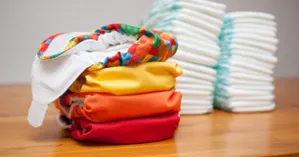
Using cloth diapers is not only less expensive, but it's environmentally friendly. You won't be contributing to a landfill. The upfront cost of diapers might deter you, but it's a one-time investment. And you won't run to the store every other day to buy them.
10. Dry Your Clothes on the Line
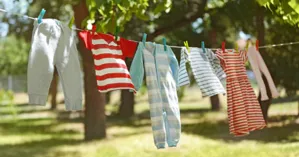
Using a clothesline or drying rack conserves energy. It also helps your clothes. Your favorite shirt will fare better on the line than in a hot dryer. Sunlight adds another disinfectant, and the air makes them smell clean and fresh.
11. Grow Your Own Food

Growing your own food is a timeless frugal living tip that not only helps you save money but also provides you with fresh, homegrown produce. By cultivating your own fruits and vegetables, you can significantly cut down on your grocery bill and enjoy the satisfaction of eating food you’ve grown yourself.
Some old-school frugal tips for growing your own food include:
- Starting small with easy-to-grow plants like tomatoes, herbs, and lettuce.
- Using recycled materials like old containers and cardboard to create garden beds.
- Composting food waste to create nutrient-rich soil for your plants.
- Preserving excess produce through canning, freezing, or dehydrating.
By growing your own food, you can save money, enjoy fresher produce, and develop a rewarding and sustainable hobby.
12. Use Cash When Shopping
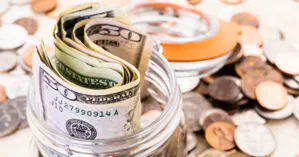
You'll have tighter control of your budget if you can only spend the cash in your wallet. And you won't be accumulating debt. This is very effective if you tend to eat out or go shopping. That's where spending money with a swipe of the card is easier. Cash will deter you from doing that.
13. Borrow from Friends and Family

If you need a food processor for a special dish, don’t buy one, ask a friend or family member if you can borrow theirs. Borrowing saves you money. It will also reduce clutter for an item you don’t use very often. It goes back to the owner. You’ll save by borrowing.
14. Entertain with Potluck Dinners
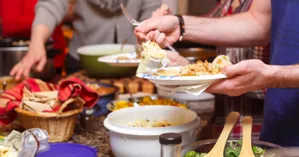
If you love to entertain but can't afford it, throw a potluck dinner. Have everyone bring their specialty dish. People love showing off, and you'll be allowing them to do just that. By throwing a potluck dinner, you'll distribute the cost, and it promotes a sense of community.
15. Create a Budget

Creating a budget is a fundamental frugal living tip that helps you take control of your finances and save more money. By tracking your income and expenses, you can identify areas where you can cut back and make adjustments to achieve your financial goals.
Some old-school frugal tips for creating a budget include:
- Using the 50/30/20 rule to allocate your income towards necessities, discretionary spending, and savings.
- Tracking your expenses with a simple notebook or spreadsheet.
- Cutting back on unnecessary expenses like subscription services and convenience foods.
- Setting clear financial goals and creating a plan to achieve them.
By creating a budget, you can save money, reduce financial stress, and work towards your financial aspirations.
16. Brew Your Own Coffee

Forget buying your daily coffee at the coffee shop. Instead, brew your own coffee at home and take it to work in a travel mug. Buy coffee in bulk to get an even better deal. You'll save money, and you won't be throwing all those cups away.
17. Reuse All Those Containers
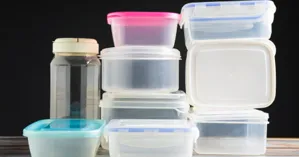
Grandma never threw a store container away, and you shouldn’t either. You can reuse these containers, whether it’s a pickle jar or an “I can’t believe it’s not butter” tub. They’re a great place to put all those leftovers from your planned meals. You could also do DIY gifts like giving a cookie mix during the holidays. Similarly, plastic bags can be washed and reused multiple times, promoting sustainability and resourcefulness.
18. Sell Things You Don’t Need
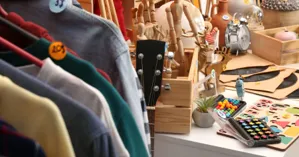
Selling things you don’t need is a fantastic way to make some extra money and declutter your home. By getting rid of items you no longer use, you can free up space and reduce clutter while earning some extra cash.
Some old-school frugal tips for selling things you don’t need include:
- Hosting a yard sale or garage sale to sell multiple items at once.
- Using online marketplaces like eBay or Craigslist to reach a wider audience.
- Trading items with friends or family members instead of selling them.
- Donating items to charity and claiming a tax deduction.
By selling things you don’t need, you can make extra money, declutter your home, and contribute to a more sustainable lifestyle.
Conclusion
Grandma knew what she was doing. Whether fixing the front door or throwing a potluck dinner party, you can effectively save money. It takes a little planning but your wallet will thank you.
Embracing a frugal lifestyle by budgeting and finding multiple uses for existing resources can further enhance your financial stability and sustainability.



